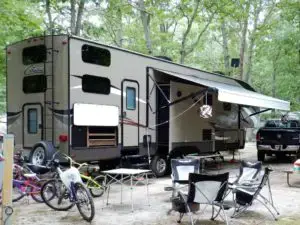Stow your caravan awning for travel.
Caravan awning wind speed.
You would not want it hanging loosely on the side of the caravan.
Motorized retractable awnings often use a wind sensor or motion sensor that automatically retracts the awning to prevent damage to the arms if the wind speed gets too high.
It can also have a motion center.
Caravan awnings are most often installed on the sidewall.
Having an awning out in a variable wind it can be quite risky.
Reinforce your awning even in high wind.
If left unattended when the wind comes up the awning material will likely rip away from the track that secures it to the side of your rv.
You can be sure to fit a thule awning to your caravan thanks.
Wind and rv awnings are a bad combination.
There are retractable products like retractable roof pergolas that have been rated higher and will withstand wind speeds of 55 63 mph beaufort 10 when open and 150 mph.
At one moment there is lesser wind the next minute the wind is high.
More commonly used now are the motion sensors as they detect movement in the awning rather than the wind speed which can be irrelevant.
Replacing the fabric on a 20 foot long awning will set you back a pretty penny.
Secure the caravan awning carefully before hitting the road.
After making the rv awning the manufacturer tests it against a wind of 20 25miles hour.
Since awnings are vulnerable to wind you require an electric awning that has a wind sensor.
This profile covers the adapters and is provided with a channel to slide a thule tent or the thule organizers in.
The wind speeds that most self supported awnings are tested to is about 20 25 miles per hour but that does assume a steady wind and not a buffeting irregular wind which can be far more dangerous.
Not only would this cause the awning to get damaged during high speed wind but also cause the caravan and the towing vehicle to wobble out of control.

